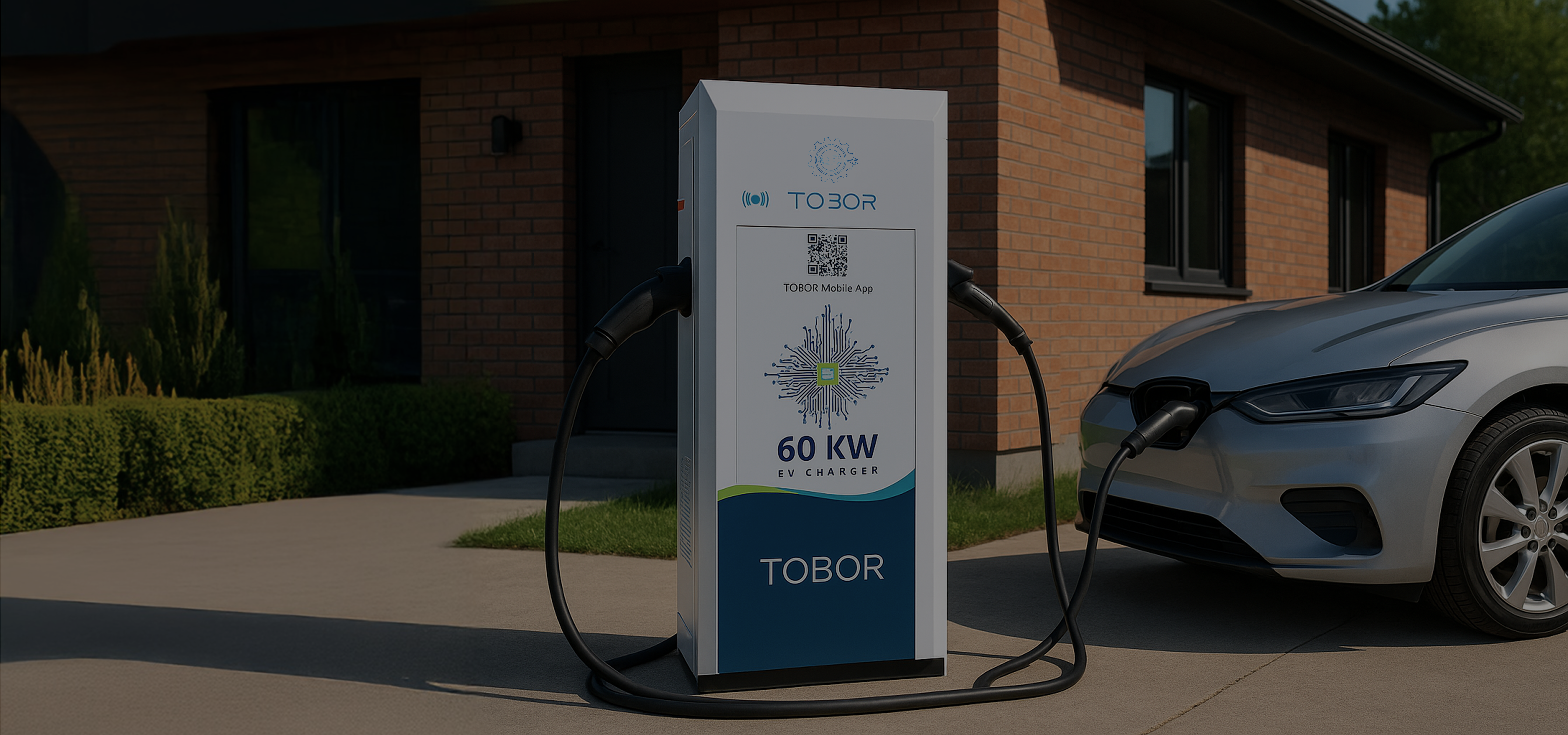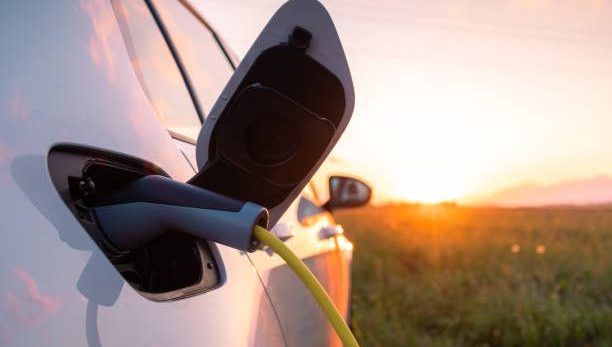
How to Set Up an EV Charging Station in India (2025): Cost and Revenue Explained


Types of Electric Vehicle Charging Stations and Their Costs
Keep the Charging Area Clean Around Your Charger for EV Car
One of the easiest but most overlooked aspects of charger care is maintaining a clean and secure environment. Make sure the area around your EV car charger is free from dust, debris, and water accumulation. Even though most electric car chargers come with IP-rated enclosures for weather protection, extended exposure to dirt and moisture can still impact performance in the long run like the Tobor 11 kW EV Charger, designed for both indoor and outdoor use. For indoor chargers, ensure the space remains dry and ventilated. For outdoor setups, try to install the charger for EV car under a canopy or protected enclosure to limit direct exposure to sun and rain. Regularly wipe down the surface of the unit with a dry cloth to prevent buildup of dust or grime.Inspect Cables and Connectors of Your Electric Car Charger
The cable and connector are critical parts of your car charger for electric cars. These components are subject to physical handling daily and can wear out over time. Make it a habit to check for any visible damage, such as cracks in the cable, bent pins, or loose connections. Avoid wrapping the cable too tightly or bending it at sharp angles. Properly coiling and storing the charging cable after each use can help extend its life. If you notice any signs of wear or malfunction in your electric car charger, it’s best to consult a certified technician before further use.Monitor the Performance of Your EV Car Charger
Monitoring how your EV car charger performs over time is essential. If you notice longer charging times or unusual behavior like your vehicle not charging fully it could indicate a deeper issue. Many modern electric car chargers come with mobile apps or digital displays that provide insights like charging speed, total energy consumed (kWh), and session history. By paying attention to these metrics, you can detect small issues early. Some advanced chargers for electric cars also support remote diagnostics and updates, allowing users to stay on top of their charger’s performance with minimal effort.Update the Software of Your Charger for Electric Cars
If your electric car charger is a smart model with Wi-Fi or app control, it likely receives firmware or software updates from the manufacturer. These updates are crucial for security, bug fixes, and compatibility with newer EV models. Check your app settings or charger dashboard every few months to ensure your charger for EV car is running the latest version. An outdated system may not just perform poorly—it could miss critical safety patches or new features.Get Your EV Car Charger Professionally Inspected Annually
Even if everything seems to be working fine, it’s wise to schedule a professional inspection of your EV car charger at least once a year. A certified electrician can check internal wiring, test safety components like MCBs and RCCBs, and ensure your installation complies with local electrical standards. This is especially important for car chargers for electric cars installed in shared residential complexes, commercial buildings, or parking areas with frequent use. Preventive maintenance reduces the risk of unexpected failure and ensures uninterrupted operation when you need it most.

Cost to Install Electric Charging Station: Infrastructure Breakdown
Beyond hardware, the cost to install electric charging station also includes the following:
- Civil Works: ₹20,000 to ₹3 lakh
- Electrical Setup: ₹50,000 to ₹15 lakh
- Software and CMS: ₹40,000 to ₹1 lakh
- Compliance & Licensing: ₹10,000 to ₹50,000
These components add to the cost for EV charging station setup. Urban locations tend to have higher charging stations for electric cars, owing to real estate and regulatory requirements.
EV Charging Setup Cost: Quick Overview
| Station Type | Equipment Cost | Infra & Install Cost |
|---|---|---|
| Home AC (7.2 kW) | ₹15k–₹30k | ₹10k–₹50k |
| Commercial AC (22 kW) | ₹50k–₹1L | ₹1L–₹2L |
| DC Fast (50–150 kW) | ₹2.5L–₹9L | ₹2L–₹5L |
For those planning large-scale deployment, bundling multiple stations at one location reduces electric charging station cost per unit and improves ROI. Businesses benefit from the cost of EV charging stations spread across users and vehicles.
Cost of Charging an EV: Real Examples
- Electricity Rate: ₹7–₹20 per unit
- Maintenance: ₹5,000–₹1 lakh per year
- Other Charges: Billing software, internet, security, insurance
Example: Tata Nexon EV (30 kWh battery)
- Home Charging: ₹240 at ₹8/unit → ₹0.80/km
- Public DC Charging: ₹450 at ₹15/unit → ₹1.5/km
Compared to petrol vehicles at ₹6–₹8/km, the cost of electric car charging stations makes EVs significantly cheaper to operate. The EV charging stations cost per charge continues to drop as power companies adopt dynamic and time-of-day tariffs.

Electric Charging Station Cost vs Business Revenue
- With increasing EV adoption, the EV charging station cost can translate into a profitable business:
- Average Charging Fee: ₹12–₹18/unit
- Daily Energy Use: 10 cars × 30 kWh = 300 kWh
- Daily Revenue: ₹3,600–₹5,400
- Monthly Income Potential: ₹1 lakh – ₹1.6 lakh
The cost electric car charging station operators face is offset by recurring income, especially at high-footfall locations. Add-ons like solar panels, lounges, or EV accessories boost returns. In rural areas, even mobile charging vans are being deployed to bring down electric charge station cost while increasing reach.
Government Incentives to Reduce Electric Charging Station Cost
- To lower the EV charging station cost, the Indian government offers:
- FAME-II Scheme for public chargers
- State Subsidies on land, equipment, and power
- Dedicated EV Metering for lower rates
Delhi, Maharashtra, and Tamil Nadu are offering incentives that bring down the cost of EV charging stations significantly, making it more accessible to startups and entrepreneurs.
Final Thoughts
As EV adoption scales, understanding the electric vehicle charging station cost becomes essential. While the charging stations for electric cars price can vary based on location and usage, India’s policies, tech innovation, and user demand are making the transition more affordable. Tobor, one of India’s emerging EV charger brands, is helping drive this shift by offering reliable and cost-efficient charging solutions tailored to both residential and commercial needs.
From home setups to large-scale fleet infrastructure, the cost of electric charging stations is reducing, and the long-term value is only increasing. Whether you’re an individual user, fleet owner, or investor, the cost of an electric car charging station in 2025 especially when supported by trusted brands like Tobor makes for a smart, future-ready investment in India’s green mobility ecosystem.
LATEST FROM THE BLOGS


Get a Custom Solution for Your Need
Let us know your requirements — we’ll get back with tailored options and a quick quote.

